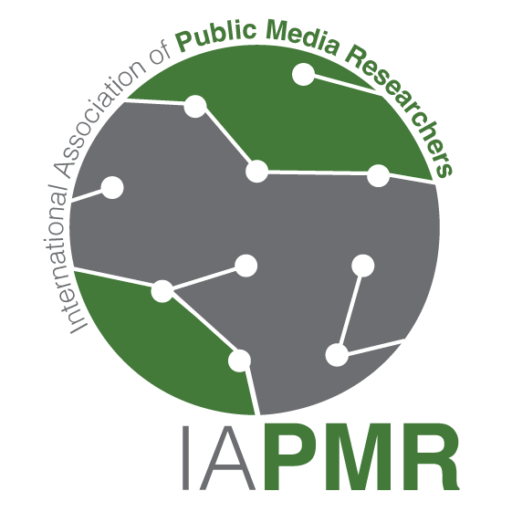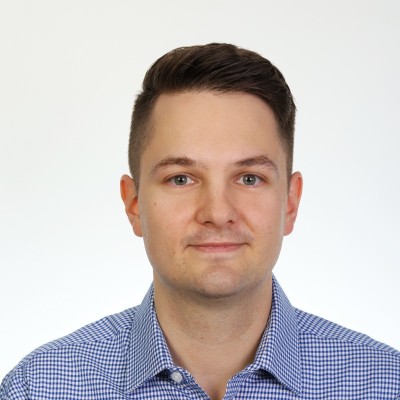Filip Świtkowski is an Assistant Professor at the University of Warsaw, Poland. He serves as a postdoctoral researcher in the PSM-AP project, a multinational research consortium investigating how public service media organizations, regulators and policymakers in six countries are adapting to the platform age. Filip holds a PhD in Political Science from Kazimierz Wielki University in Bydgoszcz, Poland, and works as a lawyer in addition to his academic work.
Can you tell us about your current research?
Changes in the media ecosystem are of particular importance for public service media in Poland. That is why my current research focuses on Polish public service media, which have been under political pressure for years, undermining their credibility and thus their fundamental foundations and role in democratic society. The ongoing constitutional crisis in Poland means that Polish public service media face an exceptionally difficult challenge in an unequal fight for the audience reach with technological giants. However, due to the geopolitical situation, as well as the growing scale of information threats, driven by the development of generative artificial intelligence – I am convinced that public service media still have an extremely important role to play in stabilizing young democracies such as Poland, and that they will be a valuable asset for social prosperity in the near future.
Platformization is a pressing issue for PSM in many regards. In which areas would you say that the PSM you compare generally perform quite well, and in which ones would you see need for improvement?
Each market is governed by slightly different laws, so it is very context dependent. However, what surprised me very positively was the high awareness of the values that guide PSM within each studied organization. During the interviews with PSM employees, we did not ask about the values at all, and despite this, they raised these issues anyway, which is a very good sign, at least in my opinion. Of course, due to the specificity of the obligations that PSM have to address, in many areas it is difficult to compete with global commercial platforms. For example, in our study we concluded that the personalization of PSM VoD services and other functionalities are not at the same level as Netflix, Amazon Prime or Disney+. Of course, there are some exceptions, such as the BBC in the UK or DR in Denmark, which are among the leaders in innovation in their home markets.
The PSM-AP project will finish by the end of October. What are your main learnings so far, and which topics should future research on the issue focus on?
One of the main problems for most PSM in Europe in the context of platformization is reaching young audiences. Even well-established brands such as the BBC or the Flemish broadcaster VRT are struggling with this. The change in the way media are consumed has irreversibly transformed the ecosystem, and PSMs – due to very extensive legal regulations – have clear problems adapting to the new reality and market competition. However, we identified attempts to develop the most effective model of cooperation or coexistence with third-party platforms, e.g. by building long-term partnerships or directly distributing content via those platforms. And although digital transformation seems to be inevitable, for some PSM it must take place in an evolutionary rather than revolutionary way – because the core audience still includes people attached to the linear offer, as in the case of TVP or RAI. Therefore, the transformation processes must take into account an element of intergenerational justice. Of course, strategic changes should not ignore also the need for adaptation of the PSM organizational culture – which seems to be noticed more often.
What are the main challenges you are facing in your research? Is any of them related to being a young scholar?
The main challenge is finding the right amount of time to devote to various research projects. As a relatively young researcher, I would most like to get involved in all possible projects that come my way. Each one brings new and interesting experiences. However, it is difficult to combine this with other life activities. In my case, I am continuing my attorney-at-law training at the Bar Association, which is sometimes difficult to reconcile with academic duties, conferences, etc. However, the legal practice helps to broaden my experience to some extent and allows me to acquire new skills that have already been useful in my research work – so there are always some positive aspects.
Is there any (emerging or senior) scholar that has particularly impacted your work in any way? Who and why?
I guess my team at the University of Warsaw. Great people, from whom I can draw a lot of inspiration every day, and I always enjoy working with them. I joined this team as part of the PSM-AP project and we established a very good relationship. Under the supervision of Michał Głowacki, we conducted several really interesting research projects – so it definitely had a positive impact on my scientific development. I could certainly also point to Catherine Johnson from the University of Leeds, who not only has tremendous knowledge, but is also an excellent manager, from whom I learned a lot of useful skills, such as how to effectively manage the research project. I also find Marius Dragomir’s research extremely interesting. The Media Capture Monitoring project is particularly important, also in connection with the ongoing process of implementing the European Media Freedom Act.

